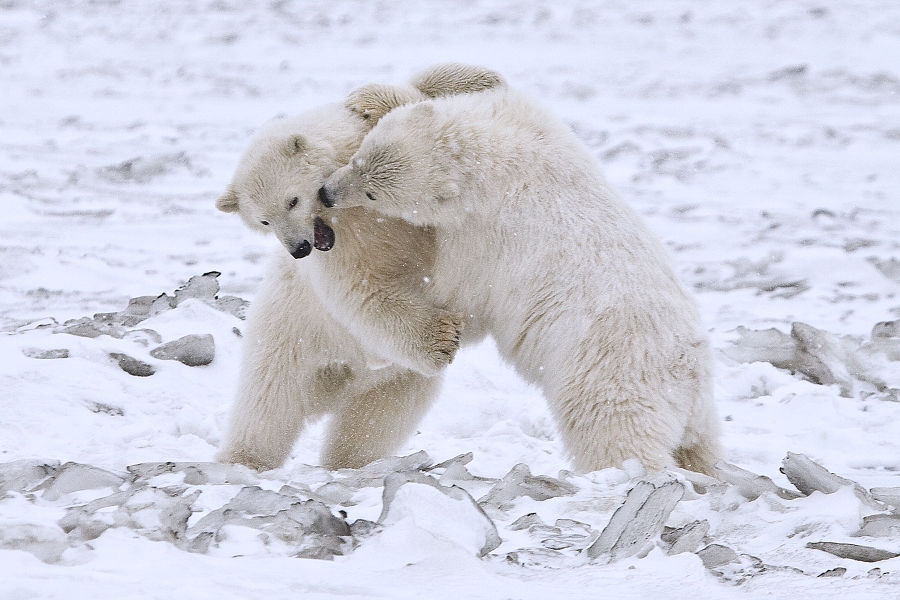How do people safely trek in polar bear country?
For hiking in polar bear country, this answer cites a page that advices to avoid camping under the stars at all times. Yet people do go trekking on Svalbard, and I don't think the density of huts is such that people stay can avoid camping. For example, this company offers a multi-day trek including a night in an expedition tent.
How can those two statements fit together? Does this company take risks? Do they know areas where polar bears don't go? Or is the expedition tent somehow polar-bear proof (sounds unlikely)? In summary, how do people safely engage in multi-day treks in polar bear country?

This post was sourced from https://outdoors.stackexchange.com/q/3168. It is licensed under CC BY-SA 3.0.
2 answers
You are accessing this answer with a direct link, so it's being shown above all other answers regardless of its score. You can return to the normal view.
Campers in polar region are encouraged to adopt the following habit (taken from here):
Along the northern coast, near North Pangnirtung Fiord, the potential for polar bear encounters is higher because of proximity to the ocean. Hikers are encouraged to camp several kilometres inland rather than on the coast.
Does this company take risks?
It will depends on how far the camping site is from the ocean and if they use bear proof shelters instead of regular tents.
Do they know areas where polar bears don't go?
They should know it. Furthermore, Parc Canada states:
If you are nervous about bears, or uncertain of your ability to deal with them, consider hiring a guide from one of the communities. Guides are knowledgeable and experienced at travelling in bear country. When hiring a guide, ask about their experience, how they will avoid encountering polar bears, and their plan of action should you encounter a bear.
How do people safely engage in multi-day treks in polar bear country?
To minimize the chances of encountering specially when camping.
This post was sourced from https://outdoors.stackexchange.com/a/3170. It is licensed under CC BY-SA 3.0.
0 comment threads
I think this question is sufficiently similar to the other one that the answer will be identical.
It isn't safe. Of course this company is taking risks, as all exploration companies do.
There are many risks with camping or trekking in polar bear country. What you do is minimise the risks where possible, and accept the risks you can't minimise.
As @Amine stated in their answer, carrying a gun is essential. I'm guessing standing watch or sleeping very light would be other useful habits!




















0 comment threads